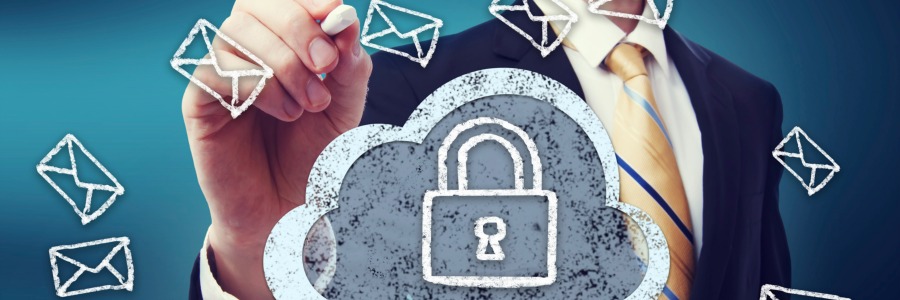Blog

Tips for keeping your email safe
People rely on email to do a wide array of tasks. We use it to sign up for websites, apply for jobs, make payments, get in touch with friends and family, and many more. However, email is also commonly exploited by hackers to steal information or launch malware attacks. Here are crucial steps to take to safeguard your email account.
Use separate email accounts
Most people use a single email account for all their online tasks. As a result, all information from websites, newsletters, shopping deals, and messages from work gets sent to one inbox. But what happens when someone breaks into that email account? Hackers could gain access to all the stored information and connected online accounts and use these in fraudulent dealings.
To prevent this from happening, create separate email accounts: a personal account to communicate with your friends and family, and a professional email account solely for work-related tasks.
Set strong passwords
Some email users often overlook the importance of having strong email account passwords. You might be surprised to learn how many people use weak passwords like “123456,” “qwerty,” and “password” and reuse passwords across multiple accounts. To keep all password-protected accounts safe, use strong passphrases that are unique to every account. It is also recommended to avoid dictionary words if possible, a password like “s%k4Jt5*WHqC9Y” would be considered very secure. Since this can’t be remembered easily consider using a password manager.
You should also consider enabling multi-factor authentication. This creates an extra layer of security by requesting another method to verify your identity, like a fingerprint scan or an answer to a security question.
Beware of email attachments and embedded links
When you see a link in an email, don’t click on it unless you’ve verified its authenticity. You never know where those links might lead you. Sometimes they are safe, but other times they can infect your computer with malware or send you to a compromised website. It’s better to assume the link is malicious if you were expecting it. If its a banking website or another that is known open a browser and browse to the website manually instead of clicking the link.
Be wary of downloading and opening email attachments as well. If the attachment is coming from strange email account names such as “@yahoo6753.com,” then it’s likely unsafe.
Watch out for phishing scams
In phishing scams, cyber-criminals pretend to be someone else — commonly high-profile companies like Amazon, Facebook, or Bank of America — to trick you into performing actions that enable them to breach your accounts. They typically write emails intended to elicit panic, such as claiming that there’s an issue with your account and that you should send them information or click on a link to “confirm” your personal details. This link will either install malware on your device or lead you to a fraudulent site.
It’s important to remember that legitimate companies would never ask such requests over email. If you get those types of messages, contact the company directly through a verified website or phone number — not the contact details in the email.
Monitor account activity
Periodically watch over your account activity. Check for any suspicious activities in your logs, such as unusual devices and IP addresses that have accessed your account. These indicate that hackers may have successfully broken into your account. If this is the case, sign out of all web sessions and change your password as soon as possible.
Encrypt emails
Email encryption ensures that any message you send can’t be understood by unauthorized users, even if they manage to intercept it.
Keep all email security software up to date
Install the latest updates for your anti-malware, firewalls, and email security software. This will filter potential email scams and fix any vulnerabilities that hackers could exploit.
Implementing multiple email security measures can be daunting, but with our help, you can rest easy knowing that your email accounts will be protected from various cyber-threats. Talk to us today for all your cybersecurity needs.
Beringer Technology Group, a leading Microsoft Gold Certified Partner specializing in Microsoft Dynamics 365 and CRM for Distribution also provides expert Managed IT Services, Backup and Disaster Recovery, Cloud Based Computing, Email Security Implementation and Training, Unified Communication Solutions, and Cybersecurity Risk Assessment.




